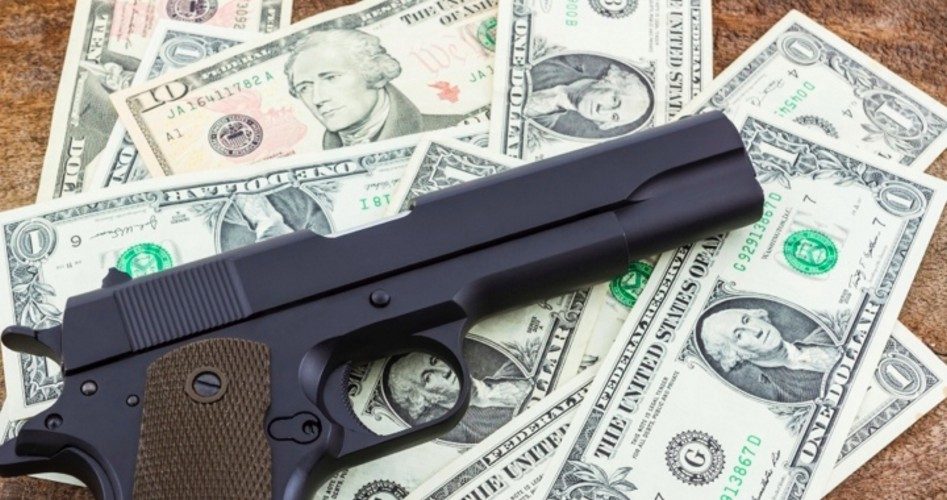
On Tuesday, a Seattle judge rejected a challenge from the National Rifle Association and other pro-Second Amendment groups against the city’s recently approved “gun violence tax,” which adds $25 to the price of each firearm sold in Seattle, along with two or five cents per round of ammunition. The plaintiffs have already vowed to appeal the decision.
According to the Seattle Times, the city council approved the controversial measure unanimously in August. The additional revenue from the tax, which will go into effect in January, is to be used for gun safety research and gun violence prevention programs. The City Budget Office estimates the gun violence tax will raise between $300,000 and $500,000 a year; however, critics contend that it won’t raise as much as officials expect if it drives the city’s few remaining gun stores out of town.
Fox News reports that the tax was modeled after a similar one in Cook County, Illinois, which includes Chicago. But Cook County’s tax has not had the success that officials had expected when it was enacted in 2012. Cook County’s Board President Toni Preckwinkle stated that one goal was to reduce gun violence in the county. However, gun violence has continued to worsen in Chicago since 2012, with the Chicago Tribune reporting that the number of people shot in 2015 is already 10 percent higher than the 2014 figure. Additionally, Cook County’s gun tax is being challenged by gun groups and gun store owners.
The Seattle Times notes that Cook County’s gun violence tax is currently being collected in escrow while the county awaits the outcome of a lawsuit.
The plaintiffs in the Seattle gun violence tax case include the National Rifle Association, the National Shooting Sports Foundation, the Bellevue-based Second Amendment Foundation, two Seattle gun stores, and two local gun owners. They claimed the tax is an abuse of the city’s authority under state law; however, King County Superior Court Judge Palmer Robinson dismissed those claims on Tuesday.
Steve Fogg, a lawyer for the plaintiffs, argued that the measure violated a state statute that bans cities from regulating firearms. He called it merely the latest in a “long-running battle between the state and the city for control of the field of firearms,” adding, “This is another example of [Seattle’s] efforts to work around pre-emption, of efforts to take back control of firearms regulation.”
GOPUSA reports that Fogg cited an e-mail sent in March by Stephanie Ervin, deputy campaign manager at the Washington Alliance for Gun Responsibility, to City Councilmember Nick Licata, in which Ervin ultimately states just that. The e-mail read,
We’re putting together a group to brainstorm opportunities at the local level to work around pre-emption as it relates to gun laws. Let’s get creative about how to curtail gun irresponsibility.
Fogg said Licata replied, “Count me in.”
Pointing to that -mail, Fogg contended, “The starting point of all this was, ‘How do we get around pre-emption.’ “
But according to Judge Robinson, the measure is not regulatory, and instead falls within the city’s taxing authority. He stated that it passes the “three-part test set forth in Covell V. City of Seattle … and Okeson v. City of Seattle.” Under that test, a fee is a tax if it primarily raises revenue for general governmental purposes, if it does not regulate an activity, and if there is no direct relationship between the fee and a service received or a burden produced.
Robinson concluded, “The tax imposed by the Ordinance under the City’s constitutional and legislative authority to impose taxes, which is separate from its regulatory authority under its police power, is not preempted by” the state law.
Seattle’s City Council was pleased with the judge’s decision. “The NRA and its allies always oppose these commonsense steps to shine light on the gun violence epidemic,” said City Council President Tim Burgess, who sponsored the law. “Judge Robinson saw through the NRA’s distorted efforts to put gun industry profits ahead of public safety.”
NRA spokesman Lars Dalseide, on the other hand, declared in a statement:
It’s unfortunate the court chose to ignore the law and embrace the Seattle City Council’s anti-gun agenda.
This is not the final word. We will keep fighting until all legal avenues are exhausted and the people of Seattle are free to exercise their Second Amendment rights without persecution from their elected officials.
Second Amendment Foundation founder Alan Gottlieb voiced similar sentiments in a news release:
We are disappointed and strongly disagree with [Robinson’s] ruling, and we are confident that the state Court of Appeals will ultimately concur with our position.
It is unconscionable for Mayor Ed Murray and the City Council to codify what amounts to social bigotry against firearms retailers and their customers.




